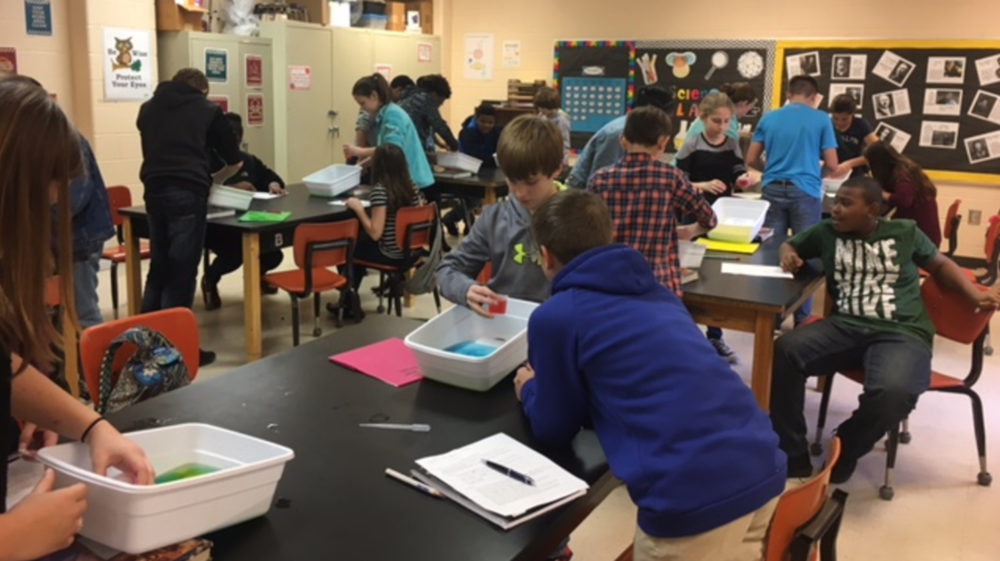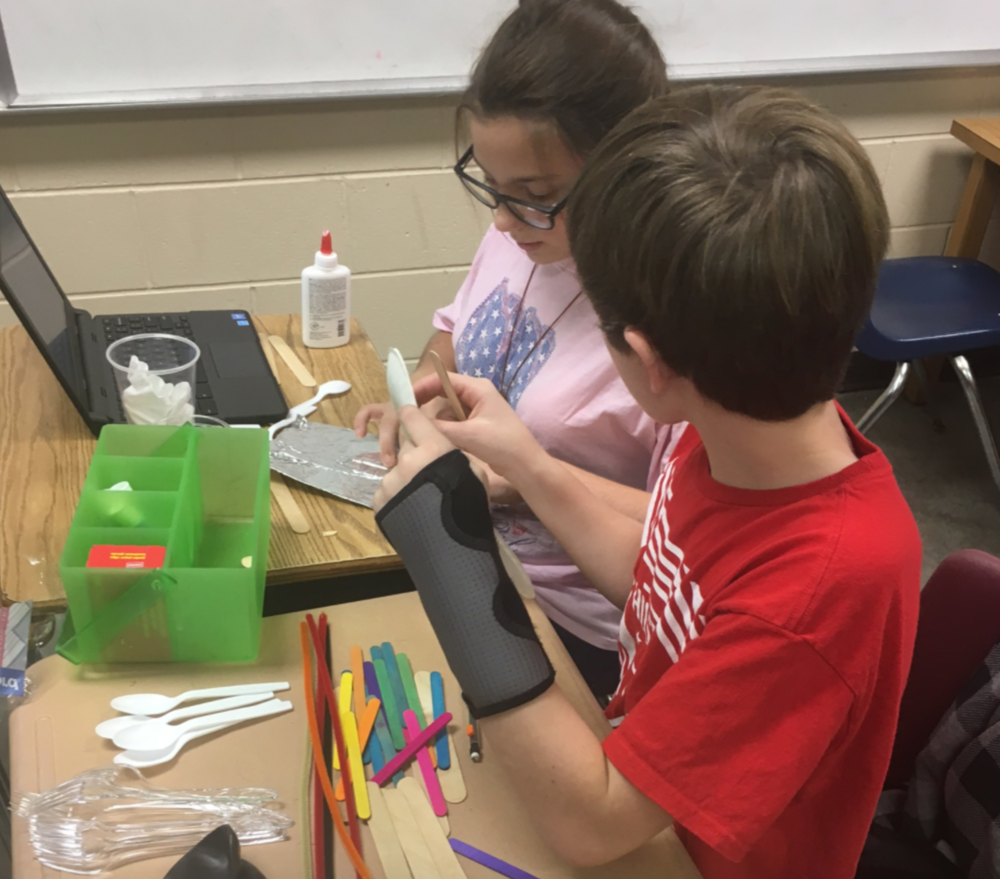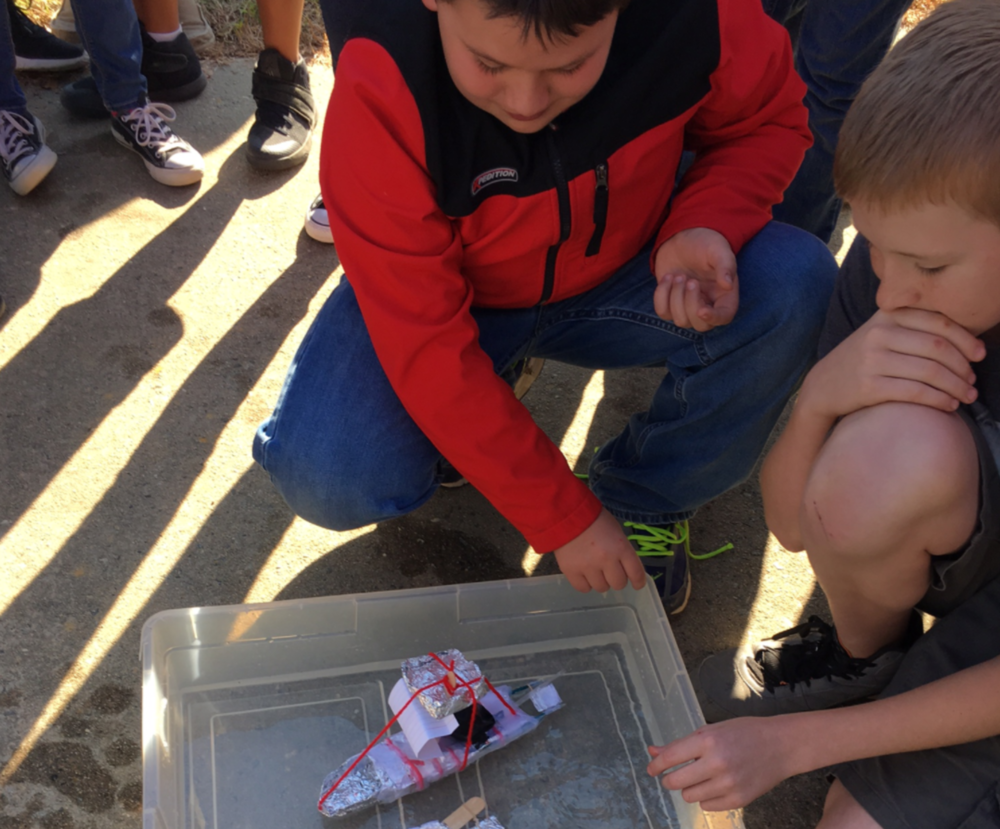
Section Branding
Header Content
New Opportunities For Rural Students
Primary Content

Get two kids off the bus. Check.
Feed them a snack. Then dinner. Check. Check.
Help them finish their homework. Check.
Give them a bath. Check.
Put clean clothes on them, pick out clothes for the next day, and wash a load of clothes. Check.
This all sounds like the work of an adult, right? Just envision adding this to your list, however: Study for your science test and complete your math and ELA homework. Check.
It is difficult to believe, but unfortunately, is a normal occurrence.
Now imagine that you don’t have to help parent your younger siblings, but you live in a rural area - so far out that you don’t have access to internet because it’s not available at a reasonable price, and you don’t have your own cell phone because that would be a little too much for the family’s budget. Your parents are both in blue-collar jobs where they did not get an education past high school. They can pay the bills, and you have everything you need, but education after high school is not even on the table for discussion.
Where is the time for playing outside? What about video games? How about reading a book, or building with Legos and Lincoln Logs? What about making up songs and singing them with a microphone of your own invention? Where is the time for all of the things that help children realize the hobbies they enjoy or what type of career they want to pursue?
Get two kids off the bus. Check.
Feed them a snack. Then dinner. Check. Check.
Help them finish their homework. Check.
Give them a bath. Check.
Put clean clothes on them, pick out clothes for the next day, and wash a load of clothes. Check.
This all sounds like the work of an adult, right? Just envision adding this to your list, however: Study for your science test and complete your math and ELA homework. Check.
It is difficult to believe, but unfortunately, is a normal occurrence.
Now imagine that you don’t have to help parent your younger siblings, but you live in a rural area - so far out that you don’t have access to internet because it’s not available at a reasonable price, and you don’t have your own cell phone because that would be a little too much for the family’s budget. Your parents are both in blue-collar jobs where they did not get an education past high school. They can pay the bills, and you have everything you need, but education after high school is not even on the table for discussion.
Where is the time for playing outside? What about video games? How about reading a book, or building with Legos and Lincoln Logs? What about making up songs and singing them with a microphone of your own invention? Where is the time for all of the things that help children realize the hobbies they enjoy or what type of career they want to pursue?

Many of our students in rural south Georgia face these circumstances on a daily basis. With nearly 30% of all of our students with no internet access at home and a high poverty rate that qualifies every school in our district as Title I, many students cannot see past current situations to foster interests that could lead to a future career. With STEAM activities at school, however, these students are encouraged to effectively embrace their strengths, and see how those could someday lead to a career, even if it is one that has not been invented yet.
On any given day in science class, students have the opportunity to investigate topics through some less-than-conventional methods. Some days we are writing songs to explain the water cycle, while on other days we may be researching, writing, producing, and recording a play that describes waves. You may catch us building moon rovers or boats that compete with wind speed, or pretending to be an astronaut that is traveling to visit the gas giants.

What began as simply a few days of thinking outside the box at our school has turned students into ones that love learning and are actively involved in the world around them. They can now see solutions where they once only saw objects, like paper, straws, or toothpicks. They can see themselves performing these tasks in the future on a larger scale. They can have hope for a future career and can fulfill the dreams their parents have for them.





